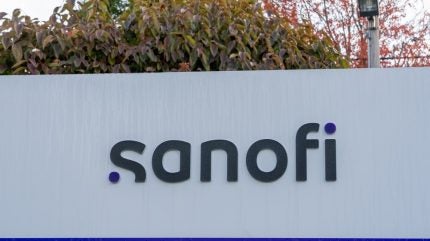
Sanofi’s rilzabrutinib has found success and met the primary endpoint in the Phase III LUNA trial in heavily pre-treated immune thrombocytopenia (ITP) patients.
The French company also plans to file for approval of the rilzabrutinib in the US and the European Union (EU) in the second half of this year.

Discover B2B Marketing That Performs
Combine business intelligence and editorial excellence to reach engaged professionals across 36 leading media platforms.
The Bruton tyrosine kinase (BTK) inhibitor met the primary endpoint in the placebo-controlled Phase III LUNA trial (NCT04562766) by demonstrating a durable platelet response when compared to a placebo. The durable platelet response was defined as the ‘proportion of participants able to achieve platelet counts at or above 50,000/μL for at least eight out of the last 12 weeks of the 24-week blinded treatment period in the absence of rescue therapy’.
The trial participants had primary ITP who had received a median of four prior therapies and had a median baseline platelet count of 15,000/μL. The results were from the adult cohort of the study, with the adolescent group currently recruiting patients.
Sanofi added that the rilzabrutinib showed positive results in secondary endpoints, such as time to platelet responses, rescue therapy use, and physical fatigue and bleeding score. However, the company did not share the detailed results.
ITP is a rare autoimmune disorder which is characterised by autoantibody-mediated platelet destruction and impaired platelet production. This leads to low platelet counts, less than 100,000/μL, and increased risk of bleeding.

US Tariffs are shifting - will you react or anticipate?
Don’t let policy changes catch you off guard. Stay proactive with real-time data and expert analysis.
By GlobalDataSanofi acquired rilzabrutinib in 2020 as part of its $3.68bn acquisition of Principia. The therapy has shown mixed results in late-stage trials. In 2021, rilzabrutinib failed to show improvement in the Phase III trial (NCT03762265) as a treatment for a rare autoimmune skin disease, pemphigus. The drug also failed to meet the eczema area and severity endpoint in the Phase II atopic dermatitis trial (NCT05018806).
In February, rilzabrutinib met the primary endpoint in the Phase II RILECSU study (NCT05107115) in patients with moderate to severe chronic spontaneous urticaria (CSU). The therapy showed an improvement in CSU symptoms such as itching, hives and urticaria in CSU patients whose symptoms are inadequately controlled by H1-antihistamines. Sanofi plans to start the Phase III trial this year.
Sanofi is evaluating rilzabrutinib in multiple autoimmune indications, including Phase II trials in warm autoimmune haemolytic anaemia (NCT05002777), IgG4-related disease (NCT04520451), and moderate to severe asthma (NCT05104892). The company also plans to start a Phase III trial for rilzabrutinib as a treatment for chronic skin disorder, prurigo nodularis, by the end of this year.





